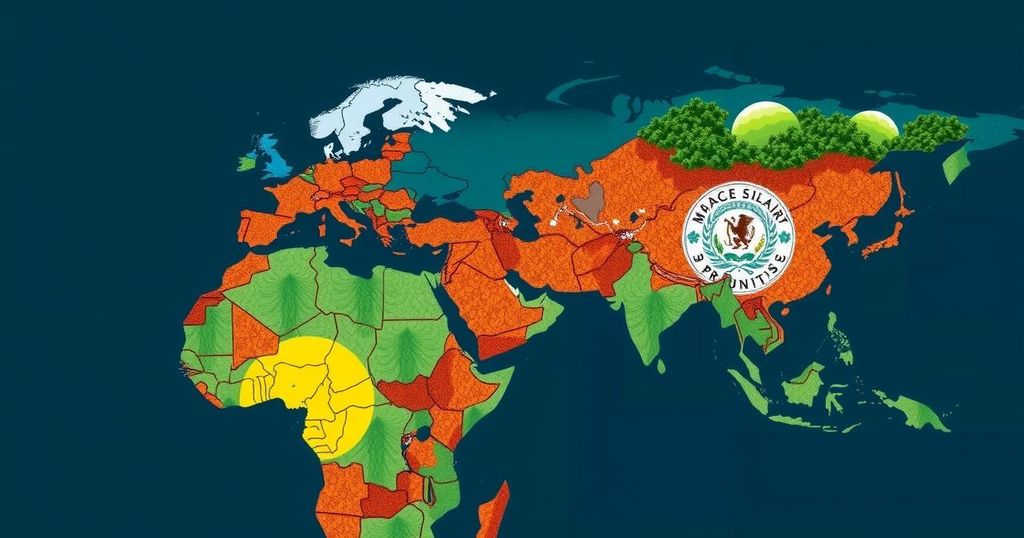Richer countries are beginning to compensate poorer nations for climate-induced damages, exemplified by Malawi’s pilot program following Cyclone Freddy. Individual farmers like Christopher Bingala received around $750 to rebuild their lives after devastating flooding. The pledge of $720 million from various countries highlights the necessity for increased funding as climate disasters worsen, with expectations reaching up to $250 billion annually by 2030, as discussed at COP29.
In the wake of devastating climate events like Cyclone Freddy, affected individuals such as Christopher Bingala—a Malawian farmer—are beginning to receive financial assistance through new compensation initiatives for climate change impacts. Cyclone Freddy brought unprecedented flooding, displacing hundreds of thousands. The introduction of a loss and damage fund reflects wealthier nations’ acknowledgment of their responsibility to assist poorer nations disproportionately affected by climate change, despite their minimal contributions to global emissions. This pilot program in Malawi, supported by countries including Scotland, is aimed at providing families with the resources to rebuild, but experts warn that pledged amounts remain insufficient against the growing frequency of climate disasters.
At the COP29 climate summit, international representatives are deliberating on the strategies for disbursing these funds, which amount to approximately $720 million, with a sobering expectation that damages will require funding upwards of $250 billion annually by 2030. Equity in climate financing remains critical, as Prime Minister Philip Davis of the Bahamas highlights the pressing need for accountability from wealthier nations whose emissions have fueled this global crisis.
The topic of loss and damage funding has gained prominence in international climate discussions, particularly as the effects of climate change become increasingly severe. Developing nations, which typically contribute the least to greenhouse gas emissions, are facing the harshest consequences, such as intensified storms and droughts. The establishment of dedicated financial mechanisms for loss and damage signifies a pivotal shift in climate policy, aiming to address historical inequities. Discussions at global conferences, like COP29, focus on the framework for accessing and utilizing these vital funds, with the understanding that proactive measures are needed to prevent humanitarian crises from escalating.
In conclusion, the establishment of loss and damage compensation is a significant step towards recognizing the impacts of climate change on vulnerable populations. The urgent need for a reliable funding mechanism is underscored by the experiences of individuals like Christopher Bingala. While the pledged funds of approximately $720 million are a starting point, they are grossly inadequate in light of the escalating climate crisis. It is imperative for wealthier nations to not only fulfill their commitments but also to increase their contributions, ensuring that developing nations receive the necessary support to mitigate their vulnerabilities to climate-related disasters.
Original Source: www.kanw.com






